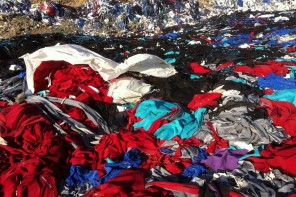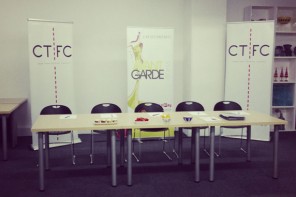Written by: Adrienne Brookbanks
Some celebrities make documentaries, professional designers launch a green clothing line and politicians deliver speeches and targets, but who are the people fighting for sustainable solutions and green alternatives in our country? This month, liveeco takes a look at some of the movers and shakers in our country!
Kobus Meiring – Developing SA’s first electrical car
Kobus Meiring is the CEO of Optimal Energy, the company responsible for the development and production of Joule, South Africa’s first locally developed electric car. Meiring was recently announced as the winner of the Visionary category of the Men’s Health Best Men 2010. Joule is a zero-emission vehicle and it is approximately five times more energy efficient than petrol or diesel vehicles. Instead of filling up at garages, you plug the car in at home instead via a standard 220 Volt home outlet and the car’s onboard charger.
According to Engineering News, the Joule has already received approximately R200-million of funding and it will need another R6,5-billion to take the venture to a point where it would break even. The Joule plant is expected to be completed in 2012 and the first car is to be delivered in 2014.
Richard Worthington – Climate change programme manager at WWF
Local climate change programme manager at WWF South Africa, Richard Worthington, has been building up a team for national advocacy work at WWF since 2008. He is also involved in developing the South African role in the ‘New Global Deal’ Network Initiative.
Before his current position, Worthingon was the project co-ordinator of the Sustainable Energy and Climate Change Project (SECCP) at Earthlife Africa. Worthington represented SANGOCO (SA NGO Coalition) on government’s Integrated Energy Planning and Long Term Mitigation Scenarios processes, he used to be a member of the Board of the global Climate Action Network and regularly speaks at energy and climate change conferences around the country.
Worthington, along with his colleagues at WWF, has urged government to generate 50% of its electricity from renewable resources by 2030. While many believe that renewable energy sources, such as hydro, solar and wind energy, can’t compete with base load power sources such as coal and nuclear energy, Worthington has some strong opinions that prove otherwise.
“More advanced economies are moving to a portfolio approach, they are not putting all their eggs in one basket. We still live with the myth in South Africa that we need huge power stations to deliver masses of power. Our whole planning philosophy needs to change,” says Worthington.
Alf Wills – Lead climate change negotiator
Alf Wills if one of South Africa’s chief climate change negotiators. During the Conference of the Parties to the framework Convention on Climate Change (UNFCCC) in Denmark last year, Wills accompanied South Africa’s environment minister Buyelwa Sonjica to discuss climate change targets and mitigation actions that need to be made.
Wills was instrumental in 2009’s COP15 negotiations, where the Copenhagen Accord, which is a non-binding legal agreement that lists the amount of CO2 reductions each nation pledges, was signed in order to ensure that global temperatures do not rise above 2°C. Wills said that the Accord, however, is limited in terms of what it does to save the planet as well as the number of nations that accepted it, saying it did not extend beyond the 28 represented at the late-night negotiations in Denmark.
Wills is currently the Environmental Affairs Deputy General and during this year’s BONN meetings (United Nations climate talks that involve 185 nations, which took place during May and June 2010), he argued that a text presented was completely unbalanced, placing too much burden on developing nations such as South Africa. During these meetings, Wills addressed the United Nations plenary session in full Bafana apparel and he campaigned for the session to end before 3pm (in time for the opening World Cup Soccer 2010 match), showing his support for one of the largest sporting events ever held in South Africa.
Peet du Plooy- Programme Manager of Sustainable Growth at TIPS
Peet du Plooy is the sustainable growth programme manager at Trade & Industrial Policy Strategies (TIPS). du Plooy is a Mechanical Engineer that worked in energy research and development at Eskom before joining WWF as Trade & Investment Advisor for South Africa. In 2009, he was elected as chair of the South African green industries association, the Environmental Goods and Services forum. His areas of expertise include the economics of sustainability and networked infrastructure.
When government and Eskom announced they would be building the R100-million Kusile power plant, the second new coal-fired power station that forms part of Eskom’s multi-billion rand expansion project, du Plooy made some thought provoking statements.
“Kusile could add approximately 20-million tons a year of carbon emissions, on top of Eskom’s already existing 200-million ton emissions. Just to put that into context, that is as much as the 20 least-emitting nations combined. So, we will jump another 20 nations, just by building one power station,” said du Plooy at the launch of WWF’s Climate Solutions 2 report last year. du Plooy also estimates that green job creation in an alternative combination of energy efficiency and renewable energy would be at least four times more than new jobs created than the Kusile / Medupi plan.
The liveeco team







